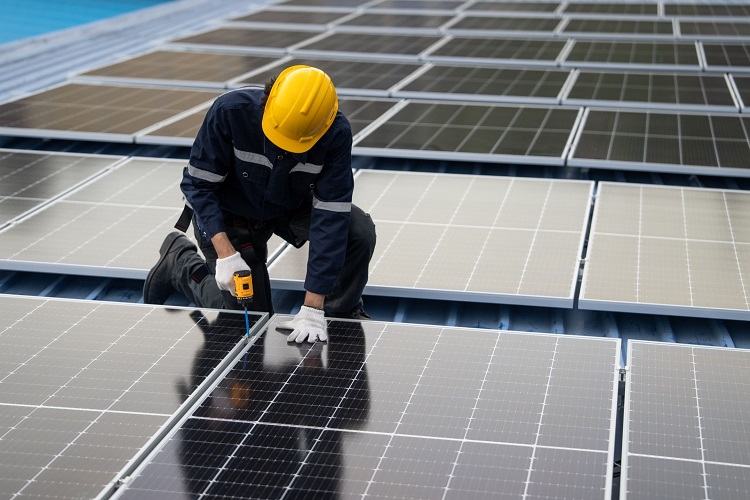Are you a business owner or manager looking for ways to save money and be kinder to the planet? You’ve probably heard about solar panels for homes, but what about your industrial building?
Imagine cutting down on those hefty electricity bills and showing your customers that you care about a greener future. Installing solar energy systems in your factory, warehouse, or commercial space might be the smart move you’ve been looking for.
This guide provides clear and practical insights to help you make an informed decision. Read on for the details!
Table of Contents
Get Quotes From a Range of Different Suppliers
Before you make any commitments, it’s wise to shop around. Avoid choosing the first offer that comes your way. Prices and service levels often vary across the market. Comparing quotes helps you understand what is fair and realistic for your project.
It’s also crucial to look past the price per panel. The lowest bid might skip essential details such as installation quality, warranty coverage, and ongoing support. Always ask clear questions about what is included in the quote. Check the company’s experience with industrial buildings and the type of equipment they use.
If you’re looking at a major investment, such as solar panels for industrial buildings, it pays to work with market leaders, as price isn’t the only factor. Leading suppliers often offer higher-quality systems, better efficiency, and stronger customer support.
These advantages add value over time. A low price may seem tempting, but it doesn’t always yield the best long-term results. Careful planning can help you lower your energy costs for years.
Assess Your Building’s Energy Needs
Commercial buildings don’t all use the same amount of energy. A factory that runs heavy machinery all day will need far more electricity than a basic storage warehouse.
Start by examining your current energy use. Review your past utility bills to determine when your energy use is highest. Next, think about how your needs may change. For example, adding new equipment or extending work shifts can increase future demand. Planning for this growth will help you avoid falling short later.
Assessing your energy needs is key when selecting the right solar panel system. It helps you choose a system that produces enough power for your building without overspending on larger systems you may not need. This leads to better savings and more value from your solar investment.
Factor in Solar Panel Installation and Maintenance Costs
Installing solar panels involves more than just buying them. It’s vital to plan for the full installation costs, which include a structural check of your building, mounting hardware, inverters, and labor.
Older buildings may need extra work before the solar panels go in. For example, an aging roof might need new support or repairs. These upgrades can add to the upfront costs, so it helps to include them in your planning.
After installation, regular solar maintenance keeps it running well. While these costs are usually low, they should be part of your long-term budget.
Cleaning the panels and checking equipment can boost energy output. This also helps you avoid bigger repair bills in the future. A well-maintained system delivers better savings year after year.
Understand Financial Incentives and Tax Credits
Switching to solar power has many financial benefits. Many governments offer incentives and solar tax credits to help businesses start using renewable energy. These programs can lower your upfront costs big time.
Start by researching the options in your area. Some programs provide direct rebates that reduce the amount you pay for your solar panels. Others offer tax deductions or credits that lower your business taxes. For example, in the United States, the Federal Investment Tax Credit (ITC) can cover a large part of your solar costs.
It’s also essential to learn about the application steps and any deadlines. Missing key dates can cost you the chance to save money. Using these programs fully makes your solar project much more affordable. It also helps you see a faster return on your investment.
Estimate Long-Term Energy Savings
The biggest financial gains from solar panels often appear over time. Once your system starts producing power, your need for electricity from the grid will drop, leading to much lower monthly energy bills.
These savings can grow into a large sum over the whole life of the solar system, which often lasts 25 years or more. For example, a factory with high energy use may save thousands of dollars each year.
It helps to work with your solar supplier to estimate these savings. They can create a model that looks at your building’s location, roof space, energy consumption, and system size. This gives you a clear idea of your return on investment.
Consider Non-Financial Benefits
While the cost savings are appealing, they’re not the only reason to go solar. Installing solar panels demonstrates your commitment to sustainability. Using solar energy shows that your business cares about the environment. This can improve how customers, partners, and team members see your company.
Many people today choose to work with businesses that support sustainability. For example, a clean energy supplier may attract more eco-conscious clients. Solar power systems also give your business more control over its energy. You can worry less about rising prices in the traditional energy market.
In addition, creating your own clean energy helps you meet corporate social responsibility (CSR) goals. It also supports global efforts to reduce carbon emissions. These benefits help build a stronger and more trusted brand over time.
Conclusion
Investing in solar panels for industrial buildings can bring real value to your business. You can lower energy costs, reduce your reliance on the grid, and take advantage of valuable incentives and tax credits. With careful planning, solar panels can deliver long-term savings, support your sustainability goals, and help your business grow stronger.

